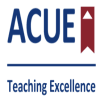Much like the year before, 2021 was a good time to be in ed tech. Investments into the sector surged globally, with funding levels in the U.S. in the first three quarters of the year nearly double those seen in all of 2020, according to data from HolonIQ. Several companies also seized the moment to go public, including Udemy, Coursera and D2L.
Over the past two months, major ed tech companies in the U.S. shed light on how their businesses are faring while speaking during calls about their earnings reports for the third quarters of their current fiscal years, which typically run from January to December. Below, we look at three major trends they highlighted.
The flywheel effect
Two companies that help colleges build and maintain online programs are making moves to lure more students onto their platforms.
One is 2U. Although the online program manager, or OPM, built its brand on helping elite universities launch and maintain graduate degrees, it's been expanding its suite of offerings in recent years to include short courses, certificates, boot camps and undergraduate programs.
To further build out its offerings, the company acquired edX, one of the world's leading MOOC platforms, in mid-November for $800 million in cash.
The deal gives 2U access to a platform with some 41 million registered learners, whom it hopes to move from free MOOCs to paid courses and programs. In a call with analysts in November, 2U CEO and co-founder Chip Paucek said these users enroll in 2U's online degree and nondegree offerings at a higher rate than do leads generated from other channels.
"We believe this overlap in learners will be a key driver in the marketing cost benefits we expect to achieve with this transaction," Paucek said. "It is a direct replacement for leads we currently pay for and will drive new revenue production."
Coursera, a MOOC provider that went public earlier this year, is adopting a similar strategy of moving nonpaying users to paid offerings. While its platform has free online courses, it also hosts paid professional certificates and degree programs.
"There's a flywheel effect as the growing selection of content and credentials attracts more individuals and institutions, which in turn motivates our educator partners to create even more content on the platform," Coursera CEO Jeff Maggioncalda said in a call with analysts in early November.
Coursera's and 2U's similar strategy is an attempt to lower student acquisition costs. Officials at 2U, for instance, expect the edX acquisition will bring down its annual marketing costs by $40 million to $60 million within the next two years. 2U spent $390 million on marketing and sales in 2020, up from $342 million in 2019, according to documents filed with the Securities and Exchange Commission.
If 2U and Coursera successfully lower those expenses, it could deal a blow to other OPM companies, said Phil Hill, partner at ed tech consultancy MindWires.
"It's going to make it pretty difficult to operate in the market if you don't have a way to drop down that cost of acquisition," Hill said.
A threat to traditional higher ed
Coursera and companies like it have been working with colleges and their faculty members to create MOOCs and educational offerings since their inception. Despite these close ties, there are signs they are posing an increasingly large threat to traditional higher ed.
The pandemic dealt a major blow to large portions of the traditional sector, which has seen sharp undergraduate enrollment declines over the past two years for all but the most selective institutions. Community colleges have been hit hardest, with student headcounts plummeting 14.8% since fall 2019, according to data from the National Student Clearinghouse Research Center.
During the November call, Maggioncalda theorized that a strong labor market might be causing enrollment to fall at community colleges because students are opting to take jobs now instead of furthering their education. But, he added, some of these learners might be pulled away from community colleges to seek credentials through these alternative programs..
"If learners can get faster, more affordable, more flexible, more job-relevant credentials on some place like Coursera, Coursera is a substitute for community colleges," Maggioncalda said. Earlier on the call, he said Coursera's entry-level certificates — which are developed by the likes of Facebook, Google, IBM, Intuit and Salesforce — attracted more than 2 million student enrollments since 2018.
Moody's Investors Service struck a similar tone when it issued a stable outlook this month for the higher ed sector in 2022.
"New entrants to the sector, such as corporations and online education companies, will offer genuine competition to traditional colleges, especially as pricing becomes more of a focus," analysts wrote in the report.
Leaning into employer-provided education
Several ed tech companies are seeing returns from efforts to work with companies to train their employees.
Officials at Udemy, a major MOOC platform that went public in October, said during a call with analysts in early December that their work with companies now accounts for 39% of their revenue – up from 23% a year ago.
And D2L, a learning management system company that went public in early November, is helping provide employee training for more than 300 companies, John Baker, D2L's president and CEO, told analysts during a call in early December.
The company, whose third quarter ended Oct. 30, also launched a new offering this year called D2L Wave that connects employees with online programs offered at participating colleges.
"There's a huge addressable market in corporate, and we're working hard to build our pipeline," Baker said.
2U likewise has seen growth in helping firms retrain their workforces. During the company's latest earnings call, Paucek said this is the fastest-growing segment in the company.
These ed tech companies are likely to increasingly work with businesses to provide employees with pathways from frontline positions to more skilled positions, said Ryan Craig, managing director at private equity and venture capital firm Achieve Partners and author of "A New U: Faster + Cheaper Alternatives to College."
"It's going to be a series of short, discrete skill-building offerings knitted together in a curated or customized manner," Craig said. "It's going to be done within enterprises in five years' time, and that's going to further reduce the influence of colleges and universities."




















